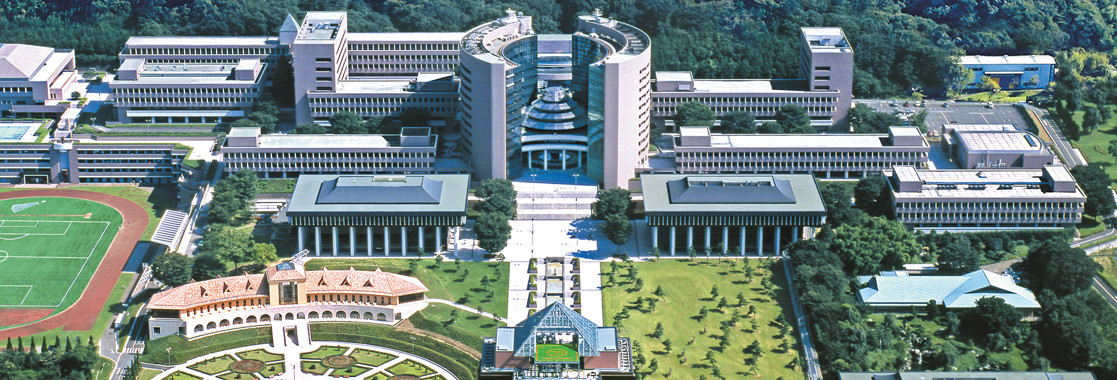
About TUT
Three Policies of Bionics Program
Admission Policy for Bionics Program
The Bionics Program considers for admission those who, with the fundamental mission of TUT in mind, are strongly motivated to apply themselves to the study and research in the practical and useful field of bionics so as to become highly skilled researchers or engineers with a practical mindset, while pursuing their personal growth. More specifically, it seeks those who wish to become creative, internationally minded, educated individuals by fostering a sense of humanity as well as an awareness of ethics and to help to build a sustainable society.
Curriculum Policy for Bionics Program
Placing emphasis on practical education and research, the Graduate School of Bionics, Computer and Media Sciences leads the progress in the fields of science and technology that contribute to the construction of a sustainable society and builds a workforce of creative, internationally minded, educated individuals possessed of a sense of humanity and an awareness of ethics as well as technical expertise. The Bionics Program offers a Master's and a Doctor's Course that are taught according to the curriculum policy outlined below.
- Master's Course, Bionics Program
The curriculum for the Master's Course is designed to have graduate students build upon what they have achieved during the bachelor's course and acquire a wide range of expert knowledge in the research field of bionics, while at the same time equipping them with a breadth of academic learning and technology by offering a flexible mix of lectures, exercise, practice, and research projects spanning multiple disciplines transcending conventional boundaries.
More specifically, through programs focusing on creative research and multidisciplinary project research, the curriculum is designed to educate graduate students to become researchers and engineers possessed of a sense of ethics in academic research and capable of conducting creative research, presenting and explaining the fruit (results and their meanings) of their research, and solving real-life problems. - Doctor's Course, Bionics Program
The curriculum for the Doctor's Course is designed not only to have graduate students master high-level, wide-ranging expert knowledge and skills in the research field of bionics but also to educate them to become researchers possessed of a strong sense of ethics and capable of finding themes of creative research, drawing up and executing research plans, and logically presenting and explaining the results and their implications.
Furthermore, it aims to educate them to become researchers with an interdisciplinary mindset who can communicate, and carry out joint research, with researchers outside their own fields. It also aims to foster proactive spirit with which to unflinchingly grapple with research in untrodden fields based on an international mindset as well as a capability to critically and logically determine whether the objective and meaning of the research are in line with the fundamental principle of the University and whether the research can contribute to the construction of a sustainable society.
Diploma Policy for Bionics Program
- Master's Course, Bionics Program
The requirements for qualifying for a master's diploma are, first, to enroll for a pre-specified period of time in the Bionics Program, second, to earn at least a specified total number of credits by completing subjects that are designed adhering to the educational and research principles of the Bionics Program (i.e., integration of life science with engineering), and finally to complete the course by passing the final exam for the master's degree given by the Bionics Program as well as the evaluation of a master's thesis.
The criterion for completing the Master's Course in the Bionics Program is that the candidate (graduate student) is equipped with wide-ranging expert knowledge and skills in bionics and also is possessed of outstanding research ability in bionics as well as various capabilities expected of practical professionals. - Doctor's Course, Bionics Program
The requirements for qualifying for a doctor's diploma are, first, to enroll for a pre-specified period of time in the Bionics Program, second, to earn at least a specified total number of credits by carrying out research in line with the educational and research principles of the Program (i.e., integration of bionics with engineering) and also completing the specified subjects, and finally to complete the course by passing the final exam for the doctorate given by the Program as well as the evaluation of a dissertation within a specified number of years.
The criteria for completing the Doctor's Course in the Bionics Program are that the candidate (graduate student) is capable of making and executing plans for highly creative research by himself/herself and presenting its results and that he/she is equipped with the academic knowledge and skills that form the basis for the research.